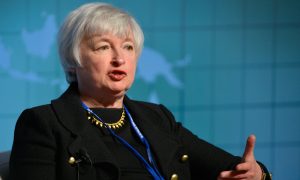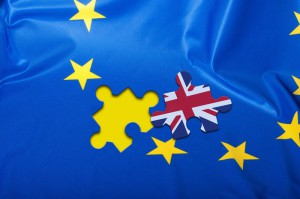Removal of data dependency signals rate rise
 The combination of the removal of data dependency when making interest rate decisions, combined with the removal of stimulus measures have combined to push the dollar to test major supports versus the common currency and retrace its fall against Sterling.
The combination of the removal of data dependency when making interest rate decisions, combined with the removal of stimulus measures have combined to push the dollar to test major supports versus the common currency and retrace its fall against Sterling.
This support for the dollar has remained firm despite the fading of expectation that the President’s fiscal reform measures would pass reasonably quickly. The dollar reached 1.1710 versus the common currency and looks likely to test the strong 1.1680 support although quarter end position adjustments may delay progress a little.
Yellen could find herself at odds with some of her FOMC colleagues as they see benign inflation and wage growth as a reason for the Fed to remain on hold since the effect of the withdrawal of stimulus starting next month will need to be measured.
President Trump’s fiscal reform plans have come in for criticism on both sides of the Congress floor. The Democrats sees the plans as favouring business and the well-off while the Republicans see them as a watered-down version of what Trump promised during his campaign. Since it will take strong negotiating skills to get the plans into law, the time for them to come to fruition will be the spring at the earliest.
Euro bull run coming to an end
 Talk of 1.2500 versus the dollar and parity against the pound now look like distant memories as the quarter ends with the single currency firmly on the back-foot.
Talk of 1.2500 versus the dollar and parity against the pound now look like distant memories as the quarter ends with the single currency firmly on the back-foot.
The Euro remains fragile in the wake of the German election although Angela Merkel returned to her role as de-facto EU leader supporting Emmanuel Macron’s proposals for a more integrated Europe following Brexit.
The timing of these proposals is interesting in that they have been issued as Brexit talks are making little progress and these are the future developments that the U.K. was solidly against whether “Remainer” or “Brexiteer”. The U.K. retained an opt-out clause for such greater integration, just about the sole concession David Cameron achieved in his much-vaunted re-negotiation with Brussels prior to the referendum.
With the return of political uncertainty feared by Mario Draghi, the effect of a weaker Euro will herald the return of inflation fears.
With the Italian election campaign due to start with the election to be held by next May further political disruption is “on the cards”. Italian opposition parties’ proposals for a non-explicitly guaranteed parallel currency to be issued for purely domestic use are concerning Brussels and Frankfurt as two of the four opposition parties in favour of such a move see it as a prelude to a long slow departure from the Euro.
Error, group does not exist! Check your syntax! (ID: 4)
Brexit talks making no progress
 One of the more telling comments made during the Brexit negotiations was made by EU Chief Negotiator yesterday, as the fourth round comes to an end.
One of the more telling comments made during the Brexit negotiations was made by EU Chief Negotiator yesterday, as the fourth round comes to an end.
Barnier told reporters that he couldn’t say when the next round would start, not certain whether it would be a matter of weeks or months. This was a veiled criticism of the lack of progress being made with the clock now definitely counting down.
The inability of the U.K. Government to produce a workable set of proposals for the three
EU demands that need to be fulfilled before negotiations can start over a future relationship illustrates the difficulties the Cabinet are facing over just how tough the U.K. position should be.
Time wears on, with just a little over a year before a workable deal is needed to be agreed for the EU Council and Commission together with the U.K. Parliament to obtain acceptance. For this reason, the U.K. is moving towards a de-facto Hard Brexit as there will come a time when the EU will threaten to withdraw from all negotiations.








![Reltex Group Reviews: Explore business opportunities by Trading [reltexg.com]](https://comparic.com/wp-content/uploads/2023/12/image001-218x150.jpg)
![Mayrsson TG Reviews: Why Choose Crypto-Trading with Them? [mayrssontg.com]](https://comparic.com/wp-content/uploads/2023/12/image1-218x150.jpg)








